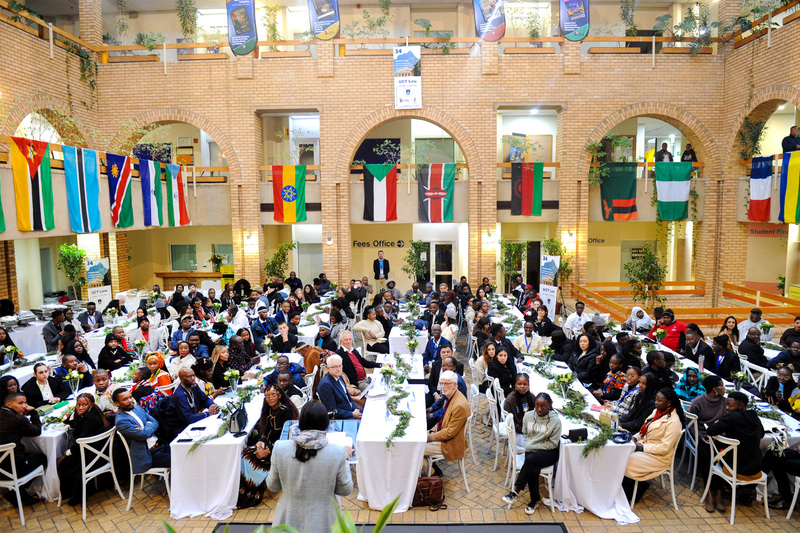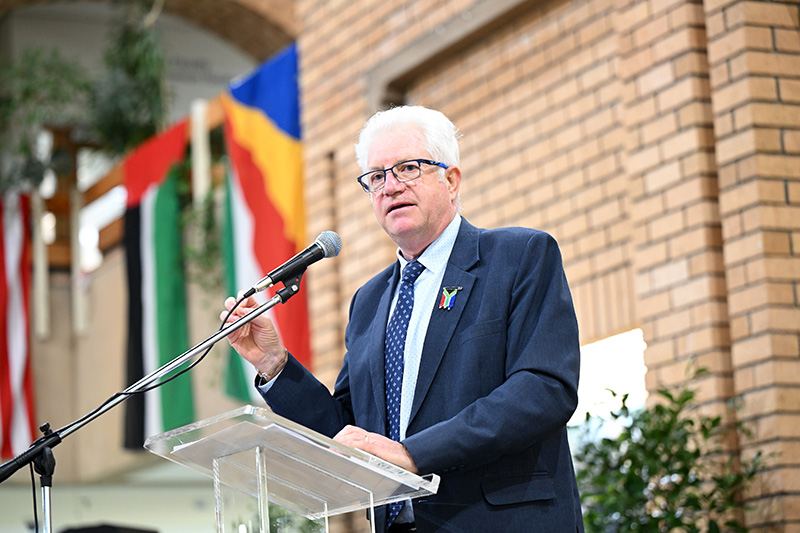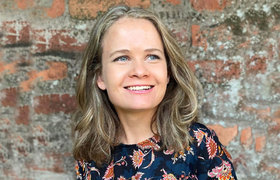Protecting human rights is of critical concern
03 July 2025 | Story Kamva Somdyala. Photos Lerato Maduna. Read time 5 min.
Issues on migration and human rights, statelessness, and civil and political rights are in the spotlight as the University of Cape Town (UCT) hosts the 34th Christof Heyns African Human Rights Moot Court Competition until 5 July.
The competition – hosted by the Faculty of Law from 29 June – happens at a time when the protection of human rights is of critical concern. The annual event brings together all law faculties in Africa, whose top students argue a hypothetical human rights case as if they were before the African Court on Human and People’s Rights.
Countries include Angola, Burundi, Egypt, Ghana, Nigeria, Uganda and Zimbabwe, while South African universities represented include, among others, the Nelson Mandela University, Rhodes University, Fort Hare University, Stellenbosch University, the University of Venda, University of Pretoria as well as the University of South Africa.

“What was seen as the greatest success of the last century, the post-1945 human rights architecture, represented by the United Nations Charter, and its numerous treaties, has been shaken by recent global and regional events, including the rise of wars, conquest and aggression, authoritarianism, and fascism,” said UCT’s deputy vice-chancellor for Transformation, Student Affairs and Social Responsiveness, Professor Elelwani Ramugondo.
“The protection of human rights is of critical concern now as it was in 1945. UCT’s Vision 2030 commits us to unleashing human potential to create a fair and just society through, among other things, intensifying our global interface with other universities and research centres by leveraging our participation in African and international partnerships. This competition falls within the contemplation of our vision.”
“Inspired by concepts such as ubuntu, our approach to global and local problems emphasises solidarity and the protection of individual and group rights.”
Professor Ramugondo added: “The competition represents the largest gathering of law students from across the continent to debate contemporary human rights problems in Africa. We are proud that this year’s participation is one of the largest in recent years. The network of the competition’s alumni continues to grow, bolstering the continent’s ability to resolve the pressing human rights issues we face at domestic, regional and international level. This competition inculcates in students the mindset and capabilities to provide African solutions to African problems. Inspired by concepts such as ubuntu, our approach to global and local problems emphasises solidarity and the protection of individual and group rights.”
The co-partners of the competition, the University of Pretoria, was represented by its vice-chancellor, Professor Francis Petersen, who addressed the audience on the impact and influence of the competition. “The founding objectives of the Moot Court competition have come a long way over the last 34 years. It’s been focusing on strengthening academic ties between institutions. It also advances human rights advocacy and trains future lawyers to challenge discriminatory laws and government abuses, thereby improving human rights abuses across Africa. You represent a generation of promise at a time when injustice and inequality feel unrelenting and where the temptation to cede to fatigue and disillusionment persist.”
Human rights are pressured
The opening ceremony was also graced by Western Cape premier, Alan Winde, who delivered the keynote address. “This is the continent of the future, but our world is totally upside down; it needs human rights lawyers across all facets of society more than ever before. You can think about the world today and conflict and citizens who have had their human rights decimated from one part of the world to the next,” Winde said.
“I was thinking about the region that I’m responsible for and the human rights that are pressured and put under test every day. As I stand here, there are probably 7 000 citizens who have been impacted by climate change and floods over the last few days and are housed in community halls and with family members because they have been displaced.”
He spoke about the province as one beset by many ills, including gender-based violence and murders. “What about their human rights? The people of this continent must fight for it. And you are the people who are the ‘we’ as future judges and campaigners of this continent and that’s why this competition is very important.”
The gathering will conclude on 5 July, where finalists will convene, followed by the announcement of results. Participants will also enjoy a gala dinner before departing on 6 July.
 This work is licensed under a Creative Commons Attribution-NoDerivatives 4.0 International License.
This work is licensed under a Creative Commons Attribution-NoDerivatives 4.0 International License.
Please view the republishing articles page for more information.




















